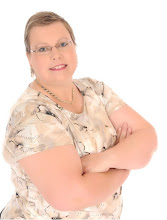Author
Colin Harvey is celebrating three upcoming book events: April 29 sees the UK release of
Damage Time
,
Winter Song
comes out in the US in May, and
Damage Time will follow it in June. Let's learn a little about him!
Jennifer Walker: Tell us a little about each of your books coming out: Damage Time and Winter Song. What are they about?
Colin Harvey: They are two very, very different books for which I think Angry Robot deserve more kudos than they've had credit for. To buy anything that's not in a series is rare nowadays, but to buy TWO standalone and very different novels takes considerable cojones. About the only thing that they have in common is that they're both SF.
Winter Song is set about a thousand years in the future when Karl Allman is ambushed in a distant star system and crashes on a remote colony world. By this time humanity has split into various factions, of which the two major ones are the Pantropists and the (Terra)Formers. One believes in adapting the human body to local planetary conditions (so for example to breathe methane), the other believes in adapting the worlds to make them habitable for human beings instead. Karl survives but is stranded. He is nursed back to health by the settlement's outcast, Bera, who has disgraced her family. Karl is desperate to get home because after years of trying to conceive, his wife is pregnant and close to delivery.
Damage Time is set in New York in 2050; Detective Pete Shah is a specialist in the Memory Crimes Division, dealing with attacks on victims whose memories are ripped and posted on the net. Shah becomes involved with a mystery blonde, before the criminals turn on him, and the hunter finds himself the hunted. I don't want to say too much about the story itself for fear of spoilers!
Jennifer Walker: What inspired the stories of Damage Time and Winter Song?
Colin Harvey: Winter Song started after a visit to the oldest settlement in Iceland, at Borganes. I watched an interactive display of the early years, including the story of Egil, one of the early settlers, who became this semi-mythical character in Egil's Saga. In modern parlance, this guy was a truly nasty piece of work, murdering under truce and generally behaving like a psycho. But his life was a heck of a story, and I thought about how much the unreadability of the prose in the Sagas puts readers off, and how much we lose by not understanding them.
Damage Time arose from a series of panels at the Glasgow Worldcon in 2005, covering life in the next fifty years. And I had some vague idea of being able to download memories as we do videos. And after about three and a bit years, the two ideas gradually converged -- as they do. While writing a novella called
Displacement
I began to read James Howard Kunstler as well as books about Peak Oil. These are scary books, because they confront the Emporer's New Clothes Syndrome -- that we don't have unlimited resources, and that we're still behaving as if we do, while all the time supposedly sensible people rejoin with "Don't be so depressing. We'll develop something; fusion, fission, whatever."
Jennifer Walker: Are any of the characters, situations or events based in reality?
Colin Harvey: The world of
Damage Time is based on a number of trends that we're already starting to see -- the spike in oil prices in 2008 is (I believe) just a foretaste of what the world faces when the oil starts to run out; when viruses become ever more resistant to antibiotics; when the sea level rises and intensive farming starts to break down. I wove some actual events such as the US Embassy Siege in Tehran in 1980 into the general history, to ground Shah in reality.
While none of the story of
Winter Song is grounded in reality, the novel was kick-started by the death of a friend, and Englishman who settled in Iceland, and who I never really got a chance to get to know as well as I would have liked. His death, and the deforestation of Iceland between the 9th and 13th centuries are at the emotional core of the novel.
Jennifer Walker: Tell us about other writing projects you have--past, present and future.
Colin Harvey: I mentioned a novella called
Displacement, which became the core of my first collection last year. It features four other stories, two of which are unpublished and which are linked and which --if they're read in the right order-- alter the reader's perception of the over-arching theme. I'm not sure how much readers of
Plain Tales Well Told will like them, since I tend to experiment more at short length, but I'm proud of them. And I edited
Future Bristol
, an anthology which punched so far above its weight it's unbelievable.
For the future, I plan a return to the universe of
Winter Song with
Ultramassive, which has space pirates, romance and black holes -- though not necessarily in that order! And I'm working on a sort of thematic follow-up to
Future Bristol, which will have a wider geographical spread and some new authors, plus a couple of writers from the first anthology.
Jennifer Walker: What is (are) your favorite genre to read?
Colin Harvey: SF by some way, with crime a distant second. I'll read most forms of fiction and non-fiction, but it's those genres I return to time and time again.
Jennifer Walker: How did you become an author, and how did your publishing journey begin?
Colin Harvey: I started writing when I was nine, stopped when I was seventeen, before beginning to write again in the late 1990s. My first novel and short story were published in 2001 by micro-presses and sank without trace. Swimming Kangaroo Books picked up my novel
Lightning Days
in 2006, and published three more of my novels --including a revision of my first one-- as well as four other books. Then I sold
Winter Song last year to Angry Robot.
Jennifer Walker: Tell us about your family. Are they supportive of your writing?
Colin Harvey: My wife is my family since our families are scattered, and she's absolutely behind me. When I fret about being away at cons, whether we can afford it, or because she's on her own, she just says 'go.' She's been arguing I should go to Worldcon, which is in Australia this year, despite the fact that it falls the day after her birthday, so I'd have to be away then.
Jennifer Walker: What is your opinion of the publishing industry today?
Colin Harvey: It's tough, and getting tougher to earn a living from. And even when you think you've made it, things happen -- it resembles more and more a game of giant Snakes and Ladders. Very few aspiring writers think beyond their first novel; they should. I think every aspiring novelist should have three more ideas for books in mind at any one time. The one they're writing, the next one, and an alternative should that one be rejected.
Jennifer Walker: Do you have any hobbies?
Colin Harvey: I'm a great armchair sportsman, but for exercise I tend to take our dog --a cocker spaniel-- and head for the hills. I also like to cook (I love spicy food) and watch films or feature length TV. A particular favourite is the Swedish language version of Wallender, Henning Mankell's detective: It's bleak but brilliant.
Jennifer Walker: If you could meet any person, living or dead, for lunch tomorrow, who would it be?
Colin Harvey: Just one? That makes it tricky!
I'm going to pick L. Sprague de Camp, who was a great early SF writer (in August 1939 he was bigger than Asimov, Clarke and Heinlein combined) and who lived to the age of 93. He was a great traveller and a polymath to boot, so we'd have loads to talk about.
Thanks to Colin for stopping by! We'll have some reviews and guest blogs coming up in the near future.








